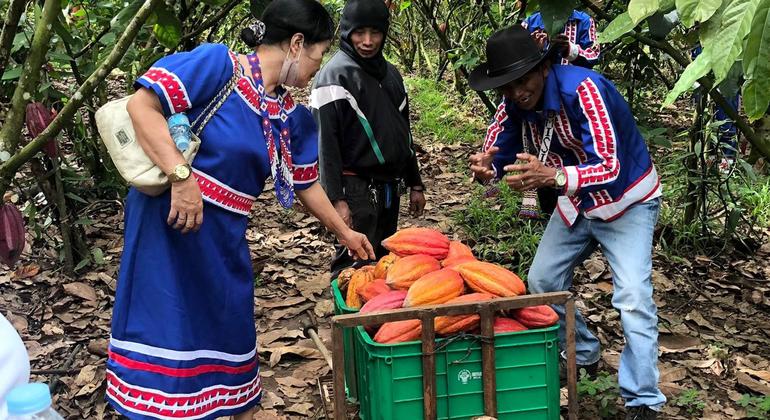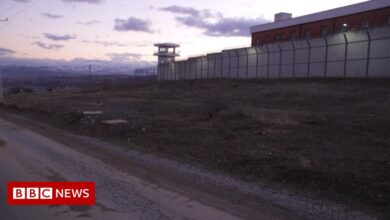Philippines: Indigenous knowledge takes on climate crisis

Local tribal leader Jemuel Perino discussed the success of local initiatives, supported by the UN Development Programme (UNDP) Adaption Fund Climate Change Innovation Accelerator (AFCIA), in educating his community on effective prevention and mitigation techniques to deal with the growing impacts of climate change.
“The indigenous cultural communities have their own centuries-old knowledge, systems, and practices and have kept them alive,” Mr. Perino said. “In the Philippines, the Government is promoting their use in environmental protection and conservation.”
Chairman of the Council of Elders of the Bukidnon Umayamnon community, Mr. Perino has seen the impact of climate change up close. Erosion, deforestation, and biodiversity loss have emerged as key threats with devastating implications for the culture, youth, and livelihoods of his people.
“In the Philippines, most of our forest lands and headwaters fall within the ancestral domains of the various indigenous cultural communities,” he said. “There is a real need for the world to fully recognize their important contributions in conserving the environment that benefits the entire population.”
Heavy tolls
Climate change is exacting a heavy toll on Filipinos’ lives, properties, and livelihoods. Left unaddressed, it could hamper the country’s ambition of becoming an upper-middle-income country by 2040.
Many farmers have reported longer and more severe periods of drought and rainfall than previously considered normal. Floods wiped out more than a dozen houses of community members along the Pulangi River in 2012 and 2013.

Typhoon Ketsana (Ondoy) dropped a month’s worth of rainfall in a single day, washing away homes and killing hundreds of people in the Philippines. (file)
“Since then, the Pulangi River has been flooding every year,” Mr. Perino said. “In 2022, the river caused so much riverbank erosion that it was widened by about 50 meters from its regular width.”
Multiple indices rank the country as among those most affected by extreme climate events. Over the past decade, highly destructive typhoons have hit almost every year, with related annual losses estimated at 1.2 per cent of overall gross domestic product (GDP).
In July, Typhoon Doksuri brought widespread flooding and landslides to the Philippines, killing at least 39 people and forcing 12,000 people from their homes.
‘A sense of cultural pride and joy’

A bamboo plantation in Bukidnon province, Philippines.
To combat the growing impacts of climate change in the region, Mr. Perino coordinates a locally-organized project under the community-based organisation, Bukidnon Umayamnon Tribe Kapu-unan To mga Datu (BUKDA).
Supported by the UN via an AFICIA grant, the project also seeks to tackle deforestation and pollution while generating sustainable income for indigenous peoples by promoting the planting of bamboo and cocoa by local farmers in Mindanao. That includes training people on cultivating, harvesting, and marketing.
Highlighting the value of bamboo in protecting the forest by helping to prevent erosion and helping restore degraded soil, Mr. Perino explained that the initiative is slated to plant 20 hectares of vegetation along the Pulangi River. Bamboo is also favoured by the community to, among other things, build houses that are more resistant to floods and storms, he added.
After creating new bamboo and cocoa plantations in July 2022, farmers have already started to benefit. The project is currently providing income to farmers through temporary labour opportunities and is supporting families to buy food and other basic items.
“Since we got AFCIA support,” Mr. Perino said, “we could see a few benefits in our community, such as income from employment due to land protection, a sense of cultural pride and joy that we can contribute to the mitigation of climate change impacts and have hope that the once barren and idle land of the indigenous peoples will one day be our refuge from the negative impacts of climate change and be a source of our financial sustainability including our next generations.”




